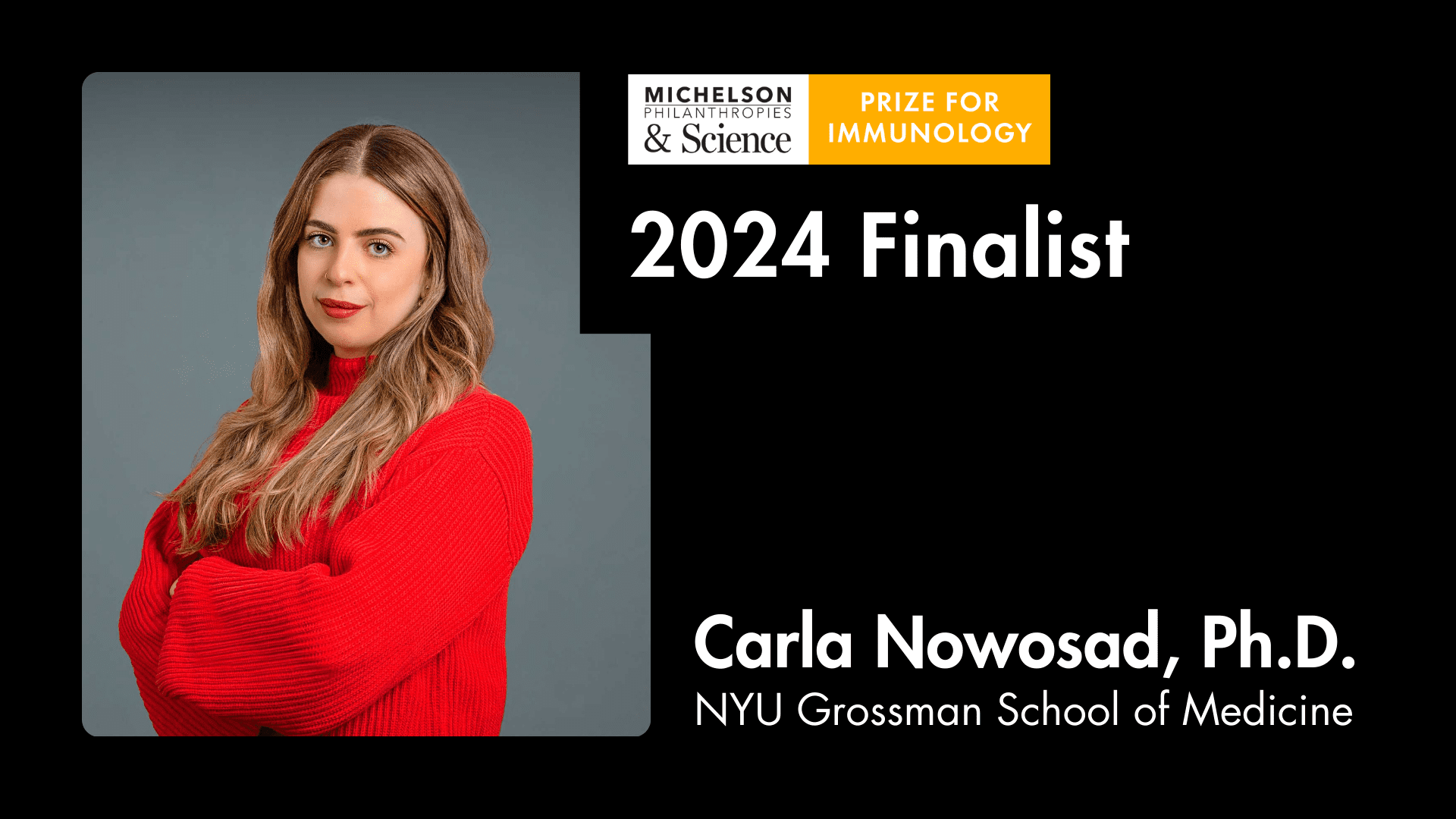
If a cut becomes infected by bacteria, the human immune system can quickly kill the invading bugs by producing antibodies that attack them. Yet the human gut is full of bacteria that support our health, and somehow the immune system knows to leave them alone.
That question mystified Carla Nowosad, an assistant professor at New York University. “Most of the attention on the immune system has been towards how to fight off things that we don’t want in our system,” she says. “But there isn’t a lot of focus dedicated to how we tolerate the foreign entities that we coexist with.”
Exploring How Intestinal Immune Cells Coexist
Nowosad set out to discover how immune cells in the intestine maintain a balance between the body and its bacteria – research that led to her being named a finalist for the 2024 Michelson Philanthropies and Science Prize for Immunology.
The prize, which honors innovators under the age of 35, comes with a $10,000 award and the publication of Nowosad’s essay in the online edition of Science.
Nowosad received her Ph.D. at the Francis Crick Institute and completed a postdoc at Rockefeller University. While at university, she took a break to work at a company that makes antibody therapies.
She became interested in the pathogen-attacking proteins, which are produced by a type of immune cells known as B cells.
B cells are born in the bone marrow but develop in “schools” called germinal centers. There, each B cell learns to make one type of antibody that will recognize one specific protein. If the body is infected by a pathogen such as a bacterium, the B cells compete to see whose antibody can best attack that threat. The germinal center then starts primarily producing identical clones of the winning B cell.
Germinal centers are scattered throughout the body, which allows them to quickly respond to infection. But in the intestine, these immune schools are constantly exposed to normal, healthy bacteria that they don’t attack.
To find out how intestinal immune cells coexist with their bacterial neighbors, Nowosad turned to a technique called Confetti, which labels each germinal center – and the set of B cells that come from it – in a different fluorescent color. First, she genetically engineered mice that produced these colorful cells in their gut lining. Once she could see these different colors under a microscope, she could cut them out of the mouse intestine and study each cell individually.
Nowosad’s team found that B cells compete in intestinal germinal centers as they do throughout the rest of the body. But because there is no infection in the intestine, the winner is the B cell clone whose antibodies maintain a balance between the different types of bacteria and the rest of the human immune system. The germinal centers can switch to producing clones of a different B cell type if that ecological balance becomes unstable.
“The fact that something this complex goes on in your body is just unbelievable,” Nowosad says. “These cells are bags of liquid. They cannot think. They have no capacity for decision-making. And yet the way that they communicate together to select the best clone to keep us healthy is just mind-blowing.”
Nowosad says that it’s still unknown whether the antibodies produced by these clones attack only one species of bacteria or many types, or how exactly they control the bacteria. Some antibodies, for instance, stick to the bacteria like Velcro, leaving the bugs alive but preventing them from leaving the gut.
Eventually, Nowosad plans to start studying germinal centers in human intestines as well. Understanding how antibodies work there could have wide medical implications. For instance, cancer immunotherapies or antibiotic treatment could throw off the delicate balance between antibodies and helpful gut bacteria. Gut antibodies are also involved in some food allergies, as well as autoimmune conditions like inflammatory bowel disease.
“The Michelson Prize will help continue this research,” says Nowosad, who recently opened her lab. “I hope the prize will also bring publicity to my group’s work and its importance to human health. We hope that it shines a spotlight on this understudied facet of biology.”
Get the latest news from Michelson Philanthropies. Sign up for our newsletter today!

